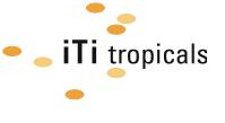Editor's note: This guest blog is adapted from a speech given by Gert van Manen at the Foodnews Juice Asia 2013 event in Bangkok, Thailand in May.
By Gert van Manen, president, iTi Tropicals Inc.
 I was born, raised and educated in Holland. I moved to the USA in 1986 and in 1988, now 25 years ago, started iTi Tropicals.
I was born, raised and educated in Holland. I moved to the USA in 1986 and in 1988, now 25 years ago, started iTi Tropicals.
I would like to thank the people of Thailand for their gracious hospitality, amazing food and phenomenal coconut water. The Thai Fragrant variety is to coconut water what Alphonso is to mango.
Coconut water: Is it just a fad or is it a sustainable ingredient? It’s currently in vogue but I believe that the industry can make this product as much a staple as jeans are to fashion.
iTi has been at it for nine years and I will make the case that coconut water is here to stay. I will also point out some issues that, without proper attention, could derail coconut water’s long-term success.
What could derail the success of coconut water? And what do we do to address this? It is quite possibly the fastest-growing beverage sector in the United States. Ever.
 So the question whether coconut water will be a fleeting fancy or a major player becomes more a question of what could derail this success and how we avoid it. Diversification is a must.
So the question whether coconut water will be a fleeting fancy or a major player becomes more a question of what could derail this success and how we avoid it. Diversification is a must.
We are working toward the same goal, whether the product is sold in Tetra, a can, a HPP bottle or concentrated and packed in drums and shipped to export markets.
We are growing demand for coconut water. The ultimate goal is to capture all the water that is out there. This takes investments and these investments will only be financed if the producers show a diversified, balanced model.
In addition to producers offering different packaging options, we need to open up new markets. There is plenty to do. When I travel in the Philippines I am often reminded of the “nata de coco” debacle. In the 1990s, the export to Japan was booming but quality issues stifled it and it never recovered.
So, here is my advice:
1. Ensure quality and 100% integrity in your product.
2. If you don’t use green coconuts , don’t say it on your label.
3. If you don’t use young coconuts , don’t say it on your labe.l
4. If you add acids , sulfites as a preservative, declare it.
5. If you add sugars, declare it.
Keep it simple. Keep it honest. That is all we need to be successful.
There is a market for sugar-added, preservatives-added. That’s not the point. Find that market and don’t sell into the other markets without declaring it. Retail consumers don’t like this nor do large corporate customers.
In 2012 a well-known brand of coconut water settled a $10 million class action lawsuit over allegedly misleading nutritional claims. So let’s learn from this.
Testing methods improve continuously. Ask Lance Armstrong about this.
There is a big market for sugar-added beverages, worldwide. But make sure to label it correctly as consumers who don’t want added sugars will be upset if they find out that they are drinking a sugar-added beverage. Regulators won’t be happy either.
There is a big push from retailers and manufacturers in the United States for ethical sourcing, organic, fair-trade, etc. We applaud this.
What is often overlooked is:
No. 1: Know who you are dealing with.
No. 2: Test for authenticity so that you know the label equals the content.
Watch a video of the entire presentation at www.coconutwaterconcentrate.com
Gert van Manen is president of iTi Tropicals Inc., Lawrenceville, N.J.

Recent Comments
Discount code
Alex Shimray
Thank you for sharing this! This is really...
Thank you for sharing this! This is really...
yes, nowadays more teenagers like to have a...